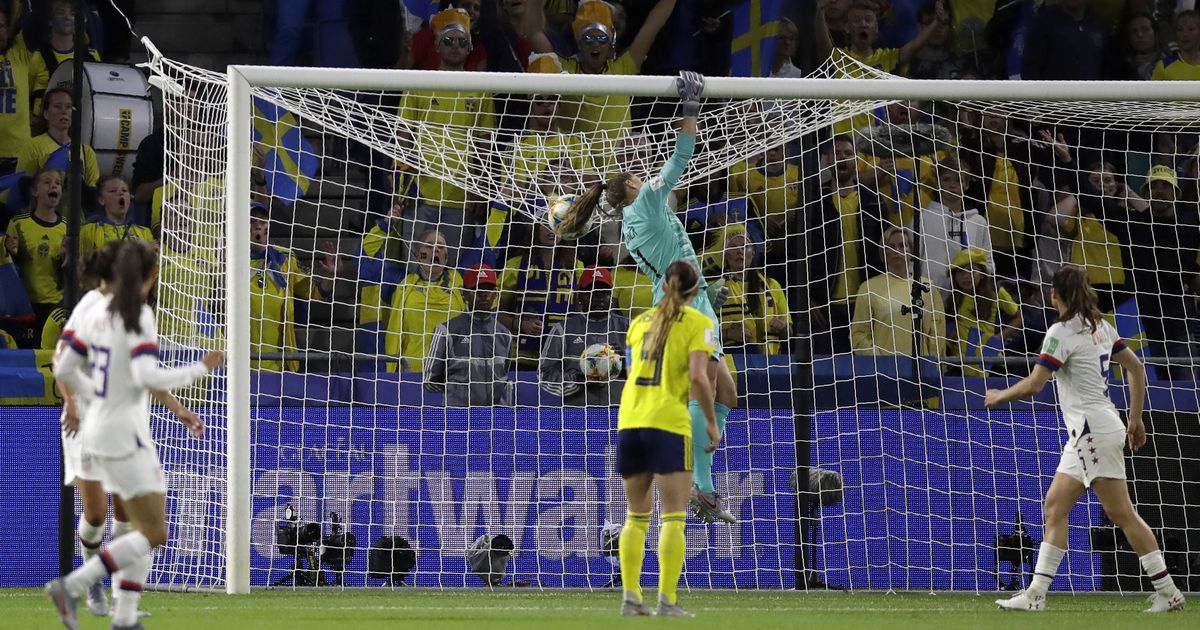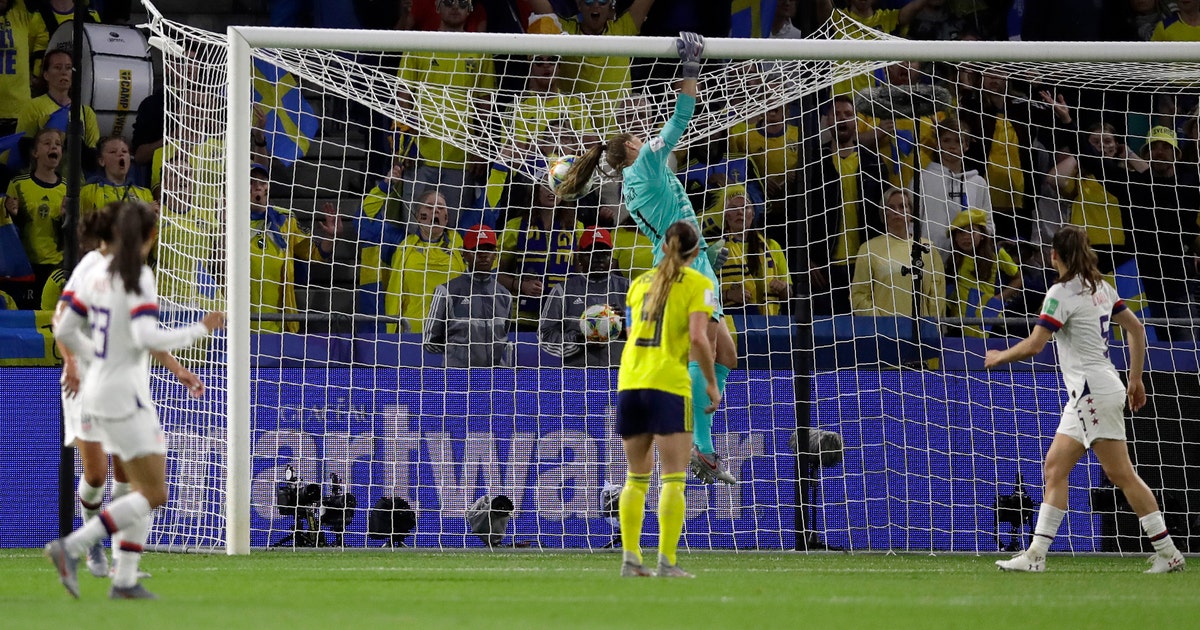US defense will face greater challenges in knockout round


REIMS, France (AP) — Much of the attention on the United States rightly goes to its prolific offense, especially after that 13-goal game to open the Women’s World Cup, but the team’s defense has been predictably reliable so far in France.
The defense has posted shutouts in the team’s first three games, marking the first time the United States has not conceded a goal in the group stage at the tournament. The defending champions open the knockout round Monday against Spain.
Goalkeeper Alyssa Naeher saw little action during the team’s rout of Thailand in the opener, but matches against Chile and Sweden provided incrementally tougher tests.
“To come away from group play with three shutouts, as a team defensively, I’m very proud of that,” she said. “It’s a goal that we have going into every game, especially as a back line, to keep clean sheets. We put a lot of time into team defending as well, all 11 players on the field are defending, and that cohesiveness is what helps bring that.”
The team’s backline in France has shifted due to lineup changes and injuries. Veteran center back Becky Sauerbrunn was held out of the first game because of a minor injury, but came back against Chile when coach Jill Ellis rested players.
Against Sweden, Ellis used the backline that is expected to start in the knockout phase, with Abby Dahlkemper alongside Sauerbrunn, Kelley O’Hara on the right and Crystal Dunn on the left. Dunn was especially effective against Sweden and in thwarting forward Sofia Jakobsson.
The United States has seven clean sheets in its last eight World Cup matches — the exception being the two goals allowed in the team’s 5-2 victory over Japan in the 2015 final. The United States went 540 minutes in Canada without conceding a goal, the longest streak in the tournament since Germany’s record 679 scoreless minutes from 2003-11.
Former goalkeeper Hope Solo allowed just three total goals and won her second straight Golden Glove as the tournament’s top goalkeeper. The backline included Sauerbrunn, Meghan Klingenberg, Julie Johnston and Ali Krieger.
Johnston, now Julie Ertz, has moved up into a role as a defensive midfielder in France. She sat out against Sweden because of a hip contusion but U.S. Soccer characterized the injury as minor. Krieger won a spot on the roster for this tournament because of her big-game experience after a long layoff from the team.
Naeher has replaced Solo, considered one of the game’s best goalkeepers ever. Solo was dismissed from the team following the 2016 Olympics.
Brushing off the inevitable comparisons, Naeher has been steady in goal.
“I’ve played with Alyssa since I was like 16 so I’ve known her for a really long time. It’s awesome to see her step into this role because I’ve always known that she has the capacity and the talent to be the starting goalkeeper on this team. She’s shown that,” O’Hara said. “She, for me, provides a very calm consistency back there. She’s also someone with steely nerves. I think she does a really good job of just putting on a game face.”
The United States is currently on a streak of 594 minutes since last conceding a goal. The last came in the 81st minute of a 5-3 victory over Australia in April.
Echoing Naeher, Tobin Heath said the Americans have embraced team defense.
“It’s huge. It’s a big part of what we’re trying to do, both offensively and defensively. We always talk about this idea of 360 defending, where everybody’s contributing,” Heath said. “I think Alyssa’s been fantastic. It’s not easy, especially in the first two games to not face that many shots, and then to have a quality opponent like Sweden, to be on her game.”
If the top-ranked U.S. can get past No. 13 Spain, there’s a possibility of a clash against hosts France in the quarterfinal in Paris. The fourth-ranked French, who scored seven goals in the group stage and conceded just one, face Brazil on Sunday.
“I think this is the best team we’ve had, and we’re so confident right now, we’re so motivated to want to win and succeed,” Krieger said. “We know what tools we have and what we need in order to break teams down and be successful in the final third. I think that’s what we’ve showcased so far.”








